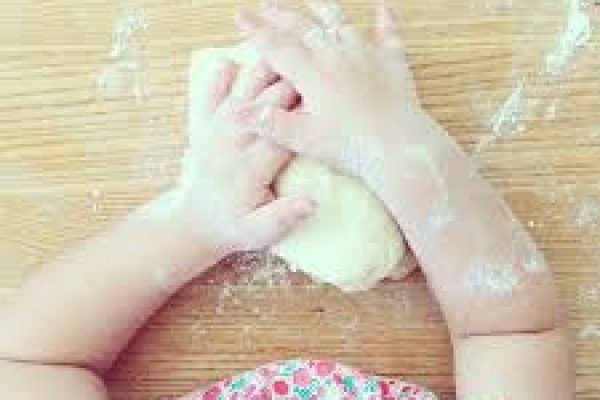Listen to this blog post!
Get my kids involved in the kitchen – are you mad?
Slightly, yes, but to be honest, whatever age your kids happen to be, there is some way they can help in the kitchen and get involved in the cooking of the family meals.
Whether it’s fetching a spoon (or banging one), smelling a spice, kneading and rolling dough, throwing mushroom slices on a pizza base, reading a recipe, stirring a soup, or even preparing a whole meal – there is something for everyone.

But why bother?
Many simple, but powerful reasons;
Basic cooking skills are the key to a life of healthy eating
Children can start to build a positive relationship with food
They can start to build an even stronger relationship with you
They can start learning a life-skill
They will probably become less picky eaters
You might all find it’s fun
You can give space for creativity in the home
You can help them learn about maths, science, nutrition, where food comes from….
Take a kid-centred approach
First, a word of advice from my own experience. I would recommend thinking about when you want kids to join you in the kitchen. Having them in there all the time, can be time consuming and potentially stressful – mainly because they are not going to do what you want all the time.
Secondly, when you decide to invite them in, make the experience about them, not you.
Make it about motivating them, raising curiosity, exciting them, giving them a sense of wonder, experimentation and responsibility (yes, even if they are just 4 years old!).
Let go of the goal you have to produce the meal you imagine or want. Be guiding and know where you are going, but try to let go a little.
This has always been hard for me, because I am a bit of a control freak in the kitchen.
‘No you are stirring the soup the wrong way!!’
… as if there were a right and wrong way to stir a soup!
So I struggled, but learnt to let things happen another way, not my way. So long as everything is safe, and something edible is produced, I am happy.
I have found when I do this, kids feel empowered.
Let’s look now at motivation.
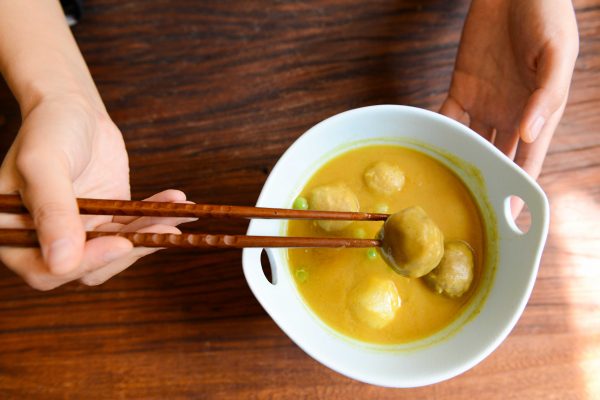
Motivating kids to start cooking
When it comes to motivation, the most important step is to give kids some level of responsibility. That is when they start to feel ownership of, well many things, including their food, their health, the running of the family, and much more.
The second thing I would recommend is to invite and encourage, rather than tell. As soon as you start telling them that they ‘should’ get involved in the kitchen and in cooking, you have lost them.
Certainly, don’t tell them they ‘should’ because it’s healthy for them. Of course it is, but few kids do things because ‘it’s good for them’.
‘Telling’ can work when they are younger, maybe age 5 to 7, but as they get older the power of ‘telling’ declines when it comes to motivating them to do things.
Inviting and getting them to want to join in works better.
I find some good techniques to get them into the kitchen are
Curiosity – ‘I am going to try a bit of a science experiment in the kitchen today, I wonder what will happen?’
Prohibition – ‘best you don’t join me in the kitchen, dinner’s going to be more of a big person’s job today’
Suggestion – ‘I can’t wait to try this recipe, do you want to have a look?’
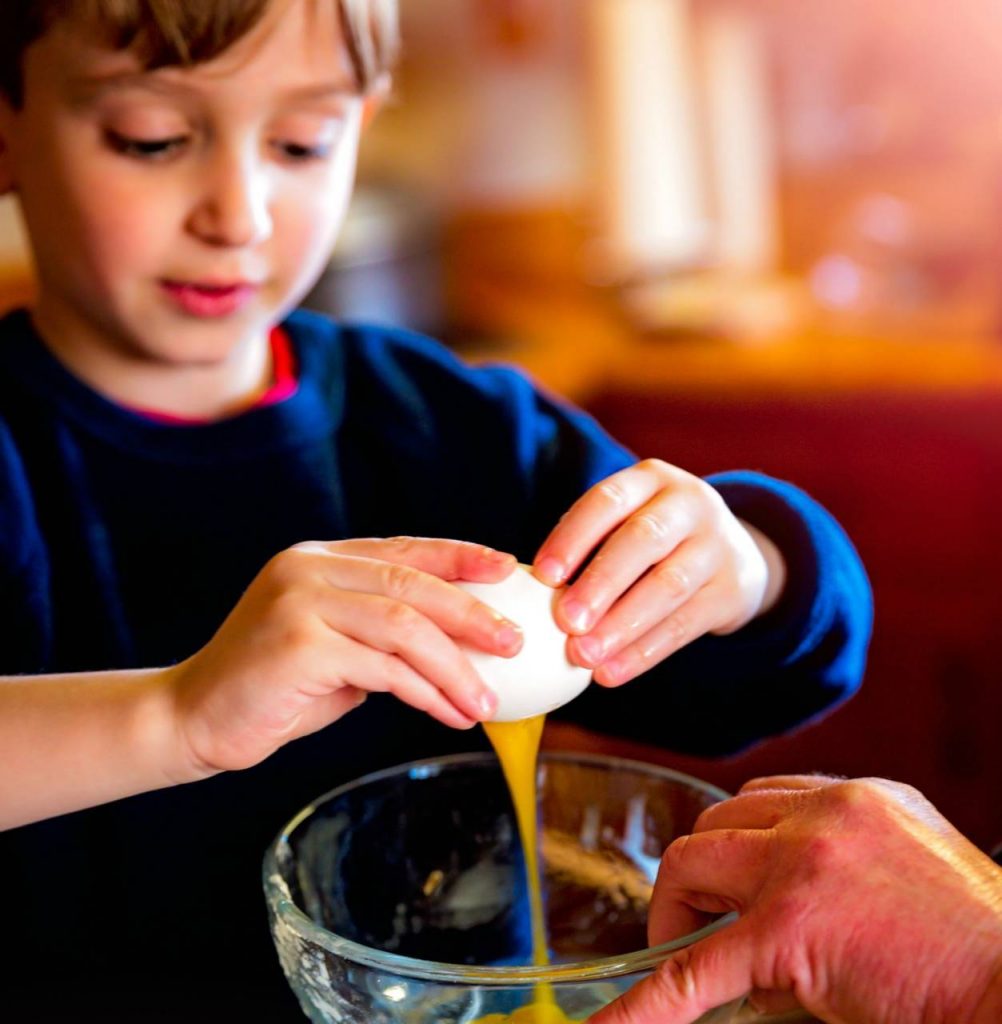
Some ideas to keep them in the kitchen are
Responsibility – ‘Can you be in charge of stirring/tasting/cracking eggs today?’
Roles – ‘ok today, you are the sous-chef’ or ‘ok today, I need you to be on the vegetable station’
Identity – First, give them a professional chef’s apron. Second, use chef terminology – ‘time to plate up’ – ‘shall we dice or julienne these carrots?’
…and if you are not sure about the terminology, you can learn most of it on Masterchef.
The many skills kids can learn
Of course, in addition to actually cooking, there are may sub-skills that kids can learn via cooking.
They can learn
Patience – (Waiting for those onions to soften in the frying pan)
Team work (‘You hold this, while I pour this’)
Organisation (Wash your hands, then prepare the ingredients and everyone tidies up at the end)
Sequencing (We need to wash the mushrooms first, then cut them, after that, fry them.)
Communication (‘This is hot, be careful!’)
As well as developing their sense of smell, taste, touch and even sight.
There is also so much cross-curriculum stuff going on – it’s amazing.
Science, Chemistry, Maths, Geography, as well as Nature all appear in the kitchen. There are some great ideas here about this. It’s great to make cross references, especially if you know what they are studying at the moment in school.
So, if they are doing ‘division’ in school and you want to make a meal for 2 when the recipe is for 6, then you need to divide, and you can comment on this to make them realise how it connects with what they are doing at school.
Help them see the connection, but try to resist turning the kitchen experience into a class. As soon as you enter ‘teacher mode’ they tend to switch off and you risk losing them ever coming back to the kitchen.
Safety
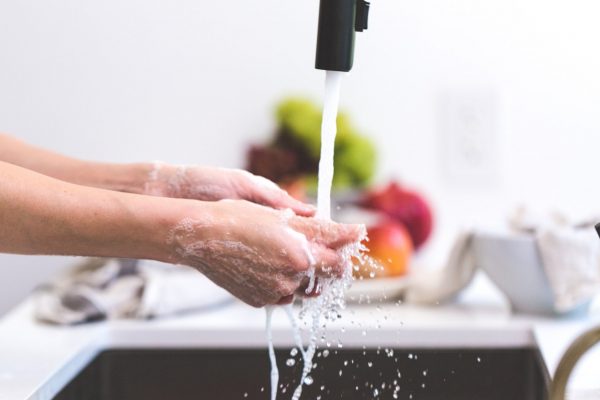
Whatever applies to adults also applies to kids, and it’s amazing how often we forget (or maybe don’t know) some of the basics of safety in the kitchen.
An important point is, that once you invite children into the kitchen they will follow your lead. Kids tend to learn by imitation, so it’s essential you set a good example.
Don’t just tell them, show them too.
Basics for all:
Wash your hands before starting
Wear a clean apron
Wear closed shoes or slippers (not just socks in case you spill something hot)
Don’t wear loose clothing that can catch fire
Carry knives with the point facing down
Don’t leave knives in the sink
Chop or cut food with your last finger joint bent
Don’t mix raw and cooked food anywhere (on the chopping board, in the pan, in the fridge…)
Use gloves for hot pans and trays
Clean the chopping board after each use
Keep the floor clean and dry when cooking
If a pan catches fire, cover with a lid or pour on baking soda
Extras for children:
You may want to ignore or emphasise certain ones here, depending on the age of your children, and remember all kids have different levels of responsibility, maturity, and safety awareness, irrespective of their age.
Cleanliness
Tie back long hair and loose clothing (cleanliness and also to avoid catching fire)
Knives
When you start letting kids cut, watch them meticulously for days, until you are sure they know what they are doing
Likewise for peelers, graters and food processors.
If cutting round things, first cut one side so they can lie it flat before cutting the rest
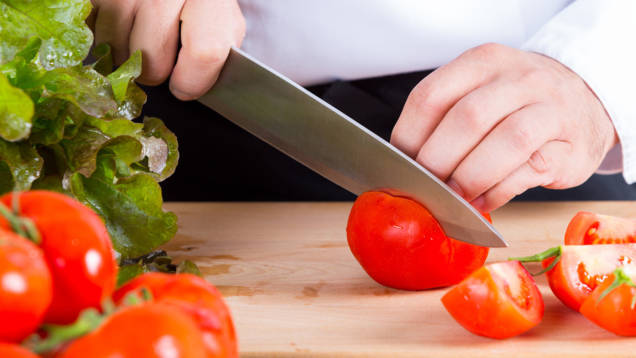
Heat
Explain they should never turn the hob/stove on unless told to do so.
Always pour oil and drop things in pans gently to avoid splashing and possible burns.
Always turn handles away from you (so you don’t accidentally knock it over)
Explain the need to be careful with touching hot pans, spoons and pots.
Wait and blow before tasting
Only explain how the stove and oven works, when they are old enough to use it.
Creating a special place
